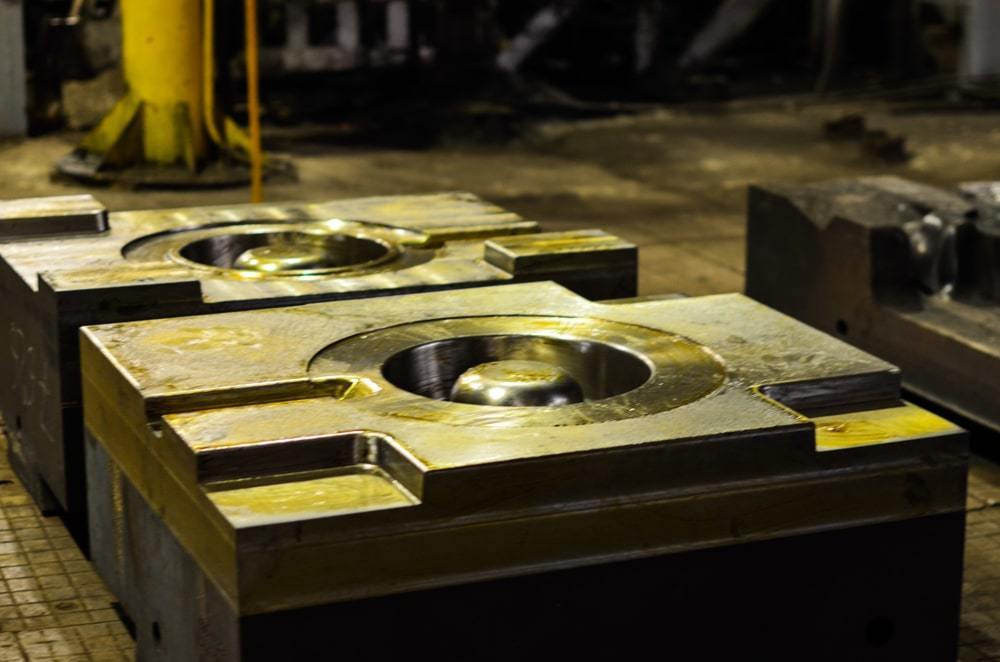While designing plastic molds for casting various types of products several factors play an important role. These factors include steel types, steel chemical composition, steel heat treatment, and etc. brief information provided here under will help you to know more about these factors.
Steel types
When you have to make molds that can work effectively for long then it is important to choose the right type of steel. Residual stress on the mold caused by machining it or by shearing and stretching of its molecule during molding plastic in to it can deform or crack the mold if right type of steel is not used in making it. The steel you choose for making molds should meet the requirement of the services imposed on it.
Most commonly used steel types in making plastic molds include:
Pre-hardened steel: This type of steel is mostly used for making large molds, molds with low wear resistance, extrusion dies and high strength holder plates.
Through-hardening steel: It is mostly used for making molds for long-run productions, from abrasion-resistant molding materials, to counter high injection pressures or closing and for high-pressure processes like compression molding.
Corrosion-resistant steel: This type of steel is used for making molds if it has to be highly exposed to corrosion.
Steel chemical composition
While making casting molds, along with techniques to manufacture them the composition of chemicals in the steel is also an important factor to consider. It will help in determining the ability of the steel to perform efficiently in a given work environment. Steel with different types of steel chemical composition is used for making molds for different types of industrial applications. The amount of different types of chemical like amino lasts and fire-retardants etc. included in the steel for molds can make it resistant to waterline corrosion, and condensation. In order to make machine-able stainless steel various alloying metals like manganese and chromium etc are added with low-carbon steel to make it corrosion resistant and the best hardness.
Steel heat treatment
The application of heat treatment on the steel used for making molds can change its condition or characteristic. It can influence the mechanical properties and condition of the steel. Heat treatment of steel is important for the finished molds to obtain suitable mechanical properties in them like strength, hardness, and toughness. But steel heat treatment can also cause a few problems like change in the dimensions of the mold and distortion in the shape of the molds, which should be solved immediately after the heat treatment of the molds.
Well, we almost understand the main factors for molds industry. But how about the material type for it? Maybe you hear about 42crmo4 steel. It is very good material for molds and component industry. Its information as below to help you understand it.
42crmo4
42CrMo4 material or AISI 4140 steel is a type of steel which has a low-alloy structure and is mainly used for making a number of important components for various types of mechanical applications like weight-on-wheel cranes, crankshafts for Automotives, spindles of generators, armor materials and joints of the pipe used in deep-well drilling of oil, etc.
Why is 42CrMo4 material important for molds?
For mold makers, 42CrMo4 steel is a very important type of steel because of its high toughness and strength along with easy machine-ability and amazing fatigue behavior. While improving fatigue behavior of a material various factors are considered like the temperature of the environment, heat treatment, chemical composition, and residual stress. Other issues to be focused on while choosing steel for making industrial components may include wear resistance and surface treatment. The wear resistance of a steel tool can be improved by treating its surface by heat and nitriding treatment. According to various researches, steel for molds has to be selected on the basis of its welding performance, corrosion protection and strength.
The 42CrMo4 steel is one of the steel types mainly used for manufacturing shafts of wind generators which have to work in reliable and safe service conditions at low temperatures for up to 20 years. During this period this shaft has to experience shear and bending stresses along with tensions as well as variable changes in the extreme weather conditions. For this reason, 42CrMo4 steel is preferably used for making the main shaft as it can work in low temperature in cold weather due to its low temperature impact toughness. It guarantees the working wind generators in the coldest temperatures like up to -30 degrees C.
Thus, there are a number of important factors to be considered while making molds.
